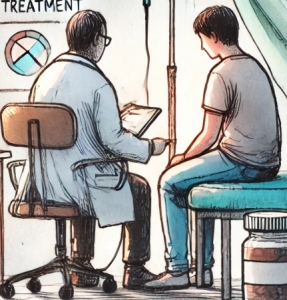
Impact of Trump’s NIH and FDA Budget Cuts on Public Health in 2025
The budget’s been passed and awaits Trump’s signature, so let’s break it down again.
Cuts the National Institutes of Health (NIH) and the Food and Drug Administration (FDA), outlined in the administration’s fiscal policy for 2025, will reshape the landscape of public health in the United States. As we examine the implications of these budgetary decisions, it’s essential to comprehend their far-reaching impact on research, healthcare provision, and public welfare.
Understanding the Scale of Cuts
The proposed budget includes substantial reductions in the funding for NIH and FDA. According to an article from the Brookings Institution, these cuts could lead to a decrease in federal support for health research and regulatory oversight, affecting everything from drug approvals to scientific advancements. The NIH scientists have also expressed concerns in a published letter, criticizing the cessation of over 2,000 research grants, which highlights the dire situation faced by numerous research initiatives.
Impact on Research and Innovation
The NIH, a cornerstone of biomedical research in the US, supports cutting-edge research that fuels innovation and new treatments. The Mintz legal firm’s analysis indicates that the cuts could severely impede research into critical health issues, limiting the development of new therapies and drugs. This is compounded by workforce reductions at the FDA, which may delay the approval of new medical treatments and devices.
Public Health Implications
A significant decrease in funding impairs the ability of these agencies to effectively oversee public health and safety.
Many of us have felt the pain specifically on this.
For instance, a report by Economic Policy Institute emphasizes that such cuts set a worrying precedent, undermining the country’s preparedness for health crises.
Global Competitiveness at Risk
Besides domestic repercussions, these budget cuts may alter how the US is perceived in the global health sphere. The reallocation of resources may put the US at a disadvantage compared to other nations in healthcare innovations and technological advancements. The HHS restructuring aims to centralize resources, yet risks dismantling the diverse research ecosystem that has been pivotal in combating both chronic and emerging diseases.
Conclusion
The impact of these budget cuts is becoming increasingly apparent, posing a serious threat to the integrity and innovative capacity of the US healthcare system. The reduction in funding for research institutions such as the NIH and FDA jeopardizes ongoing projects and stifles the future innovations crucial for advancing public health. To address these challenges, it may be necessary to increase advocacy efforts and form strategic partnerships with non-governmental organizations to bridge the funding gap and maintain America’s leadership in scientific research
For more in-depth analysis on the impact of these cuts, you can read further on NPR. (for now)



